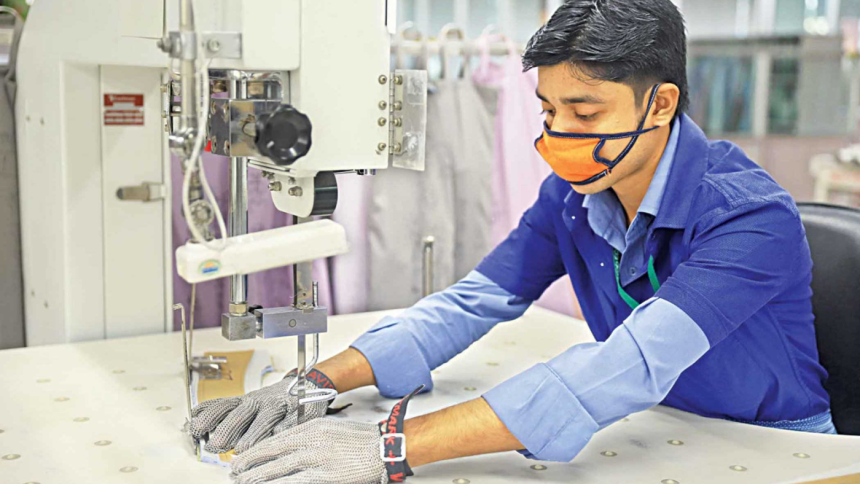What about the ethics of fashion retailers?

"UK retailers ditch unethical suppliers," cried a recent headline in several international news outlets. Did I read that correctly? Apparently so. A new report from a major global commercial bank claims that the pandemic and an increasing focus on environment, sustainability and governance (ESG) issues are shifting business priorities among retailers in the West. The bank carried out a study on more than 300 retail decision-makers. The majority (51 percent) said sustainability was more important now than it had been two years ago, while 49 percent said the same about ethical standards.
The report highlights fashion buyers—our customers—as a key driver of the trend, with RMG retailers cancelling an average of 7.5 contracts compared to an overall average of six. The most common reasons for cancelling contracts were the use of unsustainable materials (39 percent), unfair working hours among suppliers (37 percent), and a lack of accreditation to an ethical or sustainable membership organisation (32 percent).
There are two ways of looking at these findings. Firstly, they reaffirm the belief that, as suppliers, we have to invest more heavily in environmental and social governance issues. As this report makes it clear, if we, as suppliers, are found wanting in this area, our customers will ditch us.
I accept this argument to a large degree, and there is no doubt that RMG suppliers have spent heavily to meet the requirements of buyers in the past few years. The cost of auditing alone is quite frightening at times, and the trend for these costs is upwards. However, I do feel compelled to point out another aspect to this issue. The headline of this story was "Retailers ditch unethical suppliers." What about the ethics of these retailers? I have to be honest: such headlines do grate on one's nerve, given the experiences of the past couple of years. When the Covid pandemic broke, many fashion retailers cancelled orders. Then they refused to pay for those orders, even when the orders were either complete or had already been shipped to the clients. In other cases, retailers demanded huge discounts on orders which had been completed. Suppliers were left with little choice but to agree to the discounts.
We all know that the pandemic was tough on everyone when it first broke out in 2020. Some retailers went bust, while others could barely afford to pay their bills—just like their suppliers. But there were some others who refused to pay their bills simply to protect their balance sheets. Where was the "governance" in these cases? Missing in action, it would seem.
This is not just an issue around the pandemic—the challenge of purchasing practices continues to be a huge concern for all suppliers. This is why there are so many different initiatives in this area. If the purchasing practices by brands were focused on ESG issues and were supportive of sustainability among suppliers, we wouldn't be constantly having conversations about this issue.
But we all know that this is not the case. While some fashion retailers are supportive and ethical where purchasing practices are concerned, others—some of whom are big names—continue to push the limits of what is fair, or even legal, in some instances.
The study mentioned above talked about unethical suppliers being ditched. Perhaps they deserved to be ditched. But, perhaps, there were also suppliers who simply could not afford to invest in the kind of accreditations that their buyers insisted they acquire. Or maybe the suppliers felt they had already jumped through enough hoops and felt aggrieved at being asked to pay for multiple audits, many of which checked the same thing.
As an RMG supplier, I will always beat the drum for a more sustainable industry, and I am pleased that ESG is now being discussed in our industry. There should be no place in our industry for businesses who treat their workers poorly, and the results of this survey suggest that there no longer will be, as we move forward.
At the same time, large retailers in the West surely cannot talk about the importance of ESG on the one hand, while using cowboy tactics themselves when doing business on the other. To take our industry as an example, it is only right and proper that we are all held to the same standards where ESG is concerned.
For a truly sustainable industry, with ESG at its core, we must all do our part (retailers and suppliers). We should all walk the walk, not just talk the talk.
Mostafiz Uddin is Managing Director of Denim Expert Limited, and Founder and CEO of Bangladesh Apparel Exchange (BAE) and Bangladesh Denim Expo.


 For all latest news, follow The Daily Star's Google News channel.
For all latest news, follow The Daily Star's Google News channel. 



Comments